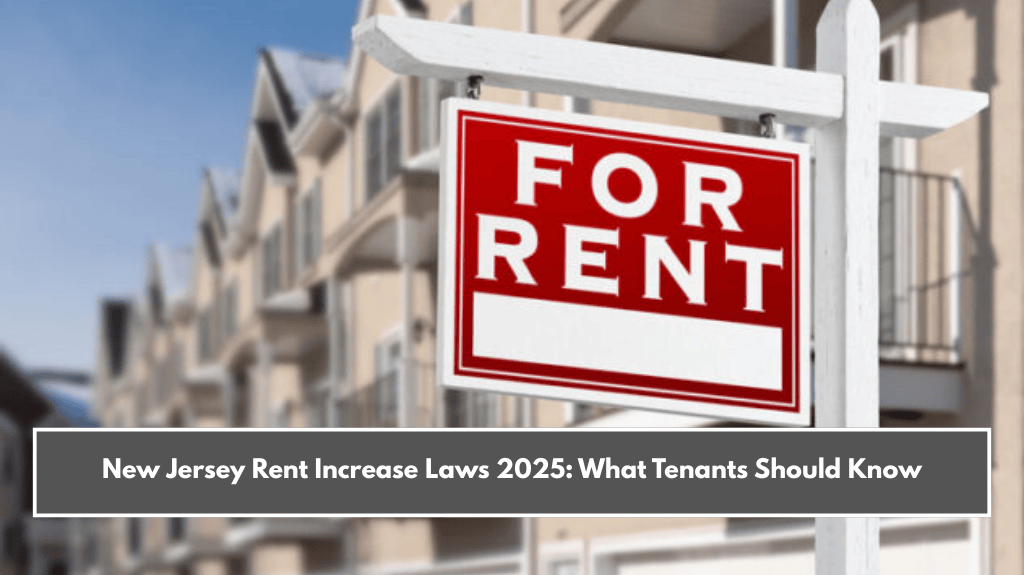New Jersey’s rent increase laws in 2025 are shaped by a unique blend of local control, tenant protections, and procedural requirements. Unlike many states, New Jersey does not have a statewide rent control law. Instead, each municipality can set its own rules, leading to significant variation across the state. Here’s what tenants need to know about rent increases in New Jersey for 2025.
Local Control and Rent Caps
- New Jersey does not impose a statewide cap on rent increases. Instead, more than 100 municipalities have enacted their own rent control ordinances, each with specific rules and limits.
- In cities with rent control, annual rent increases typically range from 2% to 6%, often tied to the Consumer Price Index (CPI) or a fixed percentage.
- For example:
- Jersey City: Maximum increase is the lesser of 4% or the local CPI.
- Newark: Capped at 4% or the CPI, whichever is lower.
- Elizabeth: 3% cap, sometimes limited to a $20 maximum.
- Lakewood: 6.5% if the landlord pays for heat, 5% if the tenant pays.
- Highland Park: 3.55% allowable increase for 2025.
- In municipalities without rent control, landlords can raise rent by any amount, but increases must not be “unconscionable” or excessive compared to similar properties in the area.
Notice Requirements
- Written Notice: Landlords must provide written notice before increasing rent. The standard notice period is at least 30 days for month-to-month leases.
- Longer Notice in Some Cities: Some municipalities require longer notice periods. For example, Edison requires 60 days’ notice.
- Lease Terms: For fixed-term leases (e.g., one year), rent can only be increased at the end of the lease term, with proper notice.
Frequency of Rent Increases
- Landlords may only increase rent once per lease term. For annual leases, this means once per year; for month-to-month leases, potentially every month with proper notice.
- Local ordinances may further restrict how often rent can be raised.
Protections Against Excessive Increases
- Even in areas without rent control, New Jersey law prohibits “unconscionable” rent increases—those that are grossly disproportionate to similar units in the area or not justified by market conditions.
- Tenants can challenge excessive increases by contacting their local rent control board or, if none exists, by seeking legal recourse in civil court.
Exemptions and Special Cases
- Most rent control ordinances apply to multi-family buildings (typically three or more units) built before a certain date. Single-family homes, newer buildings, and owner-occupied properties with a small number of units are often exempt.
- Public and subsidized housing have additional protections, with rent increases often tied to income or capped by the housing authority.
How to Respond to a Rent Increase
- Review Local Laws: Always check your municipality’s specific rent control ordinance for applicable caps and procedures.
- Check Lease Terms: Ensure the increase complies with your lease and local notice requirements.
- Challenge Unfair Increases: If you believe a rent increase is excessive or violates local law, contact your local rent control board or seek legal advice. Keep records of all communications and notices.
- File a Complaint: Many cities have formal complaint processes for tenants facing illegal rent increases.
Summary Table: Key Rent Increase Rules in Major NJ Cities (2025)
| City | Annual Cap | Notice Required | Applies To |
|---|---|---|---|
| Jersey City | ≤4% or CPI | 30 days | 3+ units, built before 1987 |
| Newark | ≤4% or CPI | 30 days | 3+ units |
| Elizabeth | 3% or $20 max | 30 days | Varies |
| Lakewood | 6.5%/5% | 30 days | Based on who pays for heat |
| Highland Park | 3.55% (2025) | 30 days | All rental dwellings |
| Edison | 5% | 60 days | Varies |
Final Tips for Tenants
- Stay Informed: Local rules change frequently. Check with your city’s rent control board or housing department for the latest regulations.
- Document Everything: Keep copies of all notices and correspondence with your landlord.
- Know Your Rights: If you suspect a rent increase is illegal or excessive, act quickly to protect your rights.
Understanding New Jersey’s rent increase laws in 2025 requires attention to both state principles and local ordinances. By staying informed and proactive, tenants can better navigate rent changes and ensure fair treatment under the law.
Sources:
- https://www.doorloop.com/blog/raise-rent-new-jersey
- https://www.hpboro.com/residents/rent-control
- https://rentpost.com/resources/article/raise-rent-laws-in-new-jersey/
- https://fly.homes/blog/accommodation-abroad/nj-landlord-tenant-law/
- https://www.steadily.com/blog/rent-increase-laws-regulations-new-jersey













